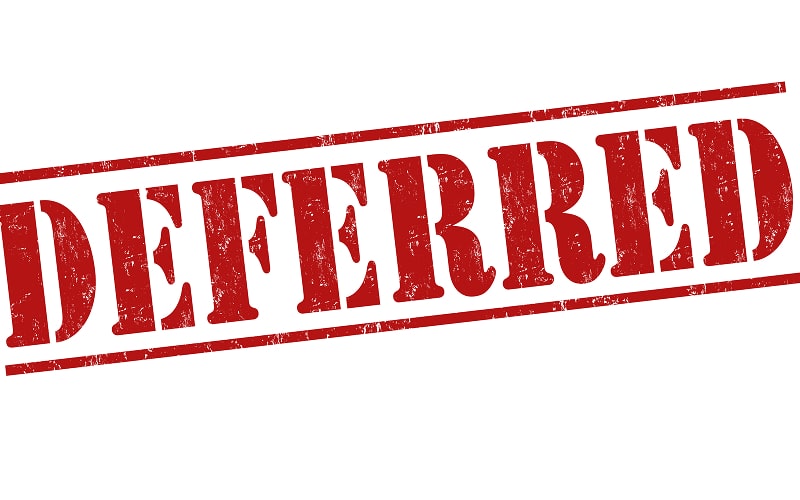Reckless driving in Fairfax County, Virginia, is more than just a traffic infraction it’s a criminal offense. A conviction can lead to fines, license suspension, or even jail time. Understanding the legal options available is vital for anyone facing such serious charges. One potential avenue is deferred disposition, which allows certain defendants to avoid a conviction under specific conditions.
This article explores reckless driving, its legal consequences, and whether deferment is possible. We also discuss challenges, eligibility requirements, and how legal representation can help navigate this process effectively.

Overview Of Reckless Driving In Virginia
Reckless driving in Virginia is operating a motor vehicle in a manner that endangers life, limb, or property. This broad definition allows law enforcement to charge drivers for behaviors that demonstrate a reckless disregard for safety.
Actions that lead to reckless driving charges include excessive speeding, aggressive lane changes, failing to yield, or driving too fast for road conditions. Even driving too slow can sometimes result in a reckless driving charge, depending on the circumstances.
In Virginia, reckless driving is a Class 1 misdemeanor, which means it carries the same legal weight as DUI or assault. A conviction can result in fines, jail time, and a criminal record, making legal guidance vital.
Understanding what constitutes reckless driving is the first step in building a strong defense. Since penalties are severe, drivers facing charges should explore every legal option, including deferment. The next section examines the potential consequences of a conviction.
Consequences Of A Reckless Driving Conviction
A reckless driving conviction has severe penalties extending far beyond the courtroom. In addition to fines and potential jail time, it can create lasting financial burdens and increase insurance rates. It can even limit career opportunities due to its impact on background checks.
Fines Up To $2,500
Virginia law allows fines of up to $2,500 for reckless driving. The actual amount depends on the severity of the offense, prior driving history, and court discretion. Judges may impose lower fines, but higher penalties are possible in extreme cases.
Jail Time Up To 12 Months
In Virginia, reckless driving is a Class 1 misdemeanor, meaning offenders can face up to one year in jail. While first-time offenders may avoid incarceration, aggravating factors can significantly increase the likelihood of receiving a harsher sentence. These include extreme speeding, reckless endangerment, or prior violations.
License Suspension For Up To Six Months
A reckless driving conviction can result in a license suspension lasting anywhere from 10 days to six months. Losing driving privileges can create major disruptions, making commuting to work or school difficult. It can also affect daily responsibilities or the care of family members who rely on transportation.
Long-Term Presence On Driving Records
A reckless driving conviction stays on a Virginia driving record for 11 years, making it one of the longest-lasting traffic-related offenses. During this time, drivers may face significantly higher insurance premiums, costing them thousands of dollars.
Increased Insurance Premiums
Insurance companies consider reckless driving a serious, high-risk offense, often leading to substantial premium increases. After a conviction, rates can double or even triple, making car insurance significantly more expensive. These heightened costs can last years, creating a long-term financial burden for drivers.
Potential Employment Challenges
Since reckless driving is a Class 1 misdemeanor, it shows up on background checks, which can create obstacles to securing employment. Many employers, especially those in transportation or delivery services, view such convictions as serious red flags. It can lead to lost job opportunities or even termination.
Reckless driving penalties extend beyond the courtroom, affecting finances, driving privileges, and employment. Given these consequences, it’s critical to explore options like deferred disposition. The next section explains how deferment works and its potential benefits.
Definition & Purpose Of Deferred Disposition
Deferred disposition is a legal mechanism that allows certain defendants to avoid a conviction by complying with court-ordered conditions. This option is often granted to first-time offenders or those with mitigating circumstances.
Legal Basis For Deferred Disposition
Virginia law sometimes permits judges to defer proceedings, allowing defendants to complete specific requirements in exchange for a reduced charge or dismissal. While this is common for minor offenses, its application to reckless driving depends on various factors.
General Process & Typical Conditions
The deferred disposition process usually involves the defendant pleading guilty or no contest. The judge then delays sentencing and imposes conditions like probation, driver improvement courses, or community service. Successful completion results in reduced charges or case dismissal.
Deferred disposition provides a second chance for certain defendants by allowing them to avoid a permanent conviction. However, eligibility depends on court discretion and specific circumstances. The next section explores whether this legal tool applies to reckless driving cases.
Applicability Of Deferment To Reckless Driving Cases
Not every reckless driving case qualifies for deferred disposition. Courts examine several factors, including the nature of the offense and public safety concerns, before granting this option. Judges ensure that granting deferment is appropriate and aligns with legal standards and public interest.
Factors Influencing Eligibility
A defendant’s prior driving record is a key factor in determining eligibility for deferred disposition. Those with a clean history are more likely to be granted deferment. However, individuals with a history of repeat offenses or serious violations may face greater challenges in securing this option.
Another critical factor is the specific circumstances of the reckless driving offense. Judges tend to be more lenient in cases involving minor infractions, such as slightly exceeding the speed limit. However, it may impose harsh penalties for extreme speeding or street racing, which poses risks to public safety.
Agreement From The Defendant & Commonwealth
For a defendant to receive deferred disposition, the individual and the Commonwealth’s Attorney must agree to the terms. However, prosecutors may oppose deferment if they believe the offense warrants strict penalties. Thus, having a strong legal advocate can be critical in these negotiations.
Potential Outcomes Of Successful Completion
If a defendant fulfills all court-imposed conditions, charges may be dismissed or reduced to a lesser offense. This outcome helps avoid a permanent criminal record and prevents long-term consequences, such as increased insurance premiums, employment difficulties, and a lasting mark on the driving record.
Deferred disposition can be a valuable option for avoiding a reckless driving conviction, but approval depends on several factors. Understanding these challenges is necessary before pursuing this path. The following section discusses obstacles and considerations defendants should keep in mind.
Challenges & Considerations Of A Deferment
Even when deferred disposition is possible, securing it can be challenging. Courts across Virginia handle cases differently, and some judges hesitate to grant deferment for reckless driving. Judicial discretion plays a significant role, meaning outcomes can vary widely depending on the circumstances and jurisdiction.
Not All Courts Grant Deferred Disposition
Virginia law permits deferred disposition, but not all judges support its application for reckless driving. Some courts take a stricter stance, arguing that reckless driving poses significant public safety risks. Because of this, certain jurisdictions are less inclined to approve deferment for these types of offenses.
Importance Of Legal Representation
Having an experienced attorney can improve the chances of obtaining deferred disposition. Legal professionals can negotiate with prosecutors, highlight mitigating circumstances, and present compelling arguments in court. Strong legal advocacy may persuade a judge to consider deferment, even in cases where it is not commonly granted.
Potential Conditions Imposed
Judges often impose conditions for deferred disposition, such as driver improvement courses, community service, or probation. Defendants must comply fully with these terms. Any violation, such as another traffic offense during probation, can lead to immediate conviction and full penalties for reckless driving.
While deferred disposition offers benefits, it comes with challenges. Securing approval requires strong legal arguments and compliance with court conditions. Given these complexities, proper legal representation can make a significant difference. The next section introduces how The Irving Law Firm can help.
Fairfax County Criminal Attorneys Advocates For You
At Fairfax County Criminal Attorneys, we understand how serious reckless driving charges can be. Our legal team works to protect clients from harsh penalties by exploring every possible defense, including deferred disposition, when applicable.

We carefully evaluate each case, examining law enforcement procedures and evidence to identify weaknesses in the prosecution’s argument. Whether negotiating with prosecutors or presenting compelling arguments in court, we strive to minimize the impact of reckless driving charges.
Our approach is personalized, ensuring clients understand their legal options and obligations. We guide clients through every step, working toward a favorable outcome, which may mean case dismissal, reduced charges, or deferred disposition.
We believe in proactive and aggressive defense strategies tailored to each client’s situation. Reckless driving cases require careful navigation, and we are dedicated to advocating for favorable solutions to protect your rights, driving privileges, and long-term future.
Reckless driving in Virginia carries severe legal consequences, but deferred disposition may offer a path to avoid a permanent conviction. Eligibility depends on various factors, and courts have discretion in granting deferment, making legal representation highly beneficial.
At Fairfax County Criminal Attorneys, we help clients explore all available legal options. If you’re facing reckless driving charges, contact us for guidance. We are committed to protecting your rights and helping you resolve your case favorably.




